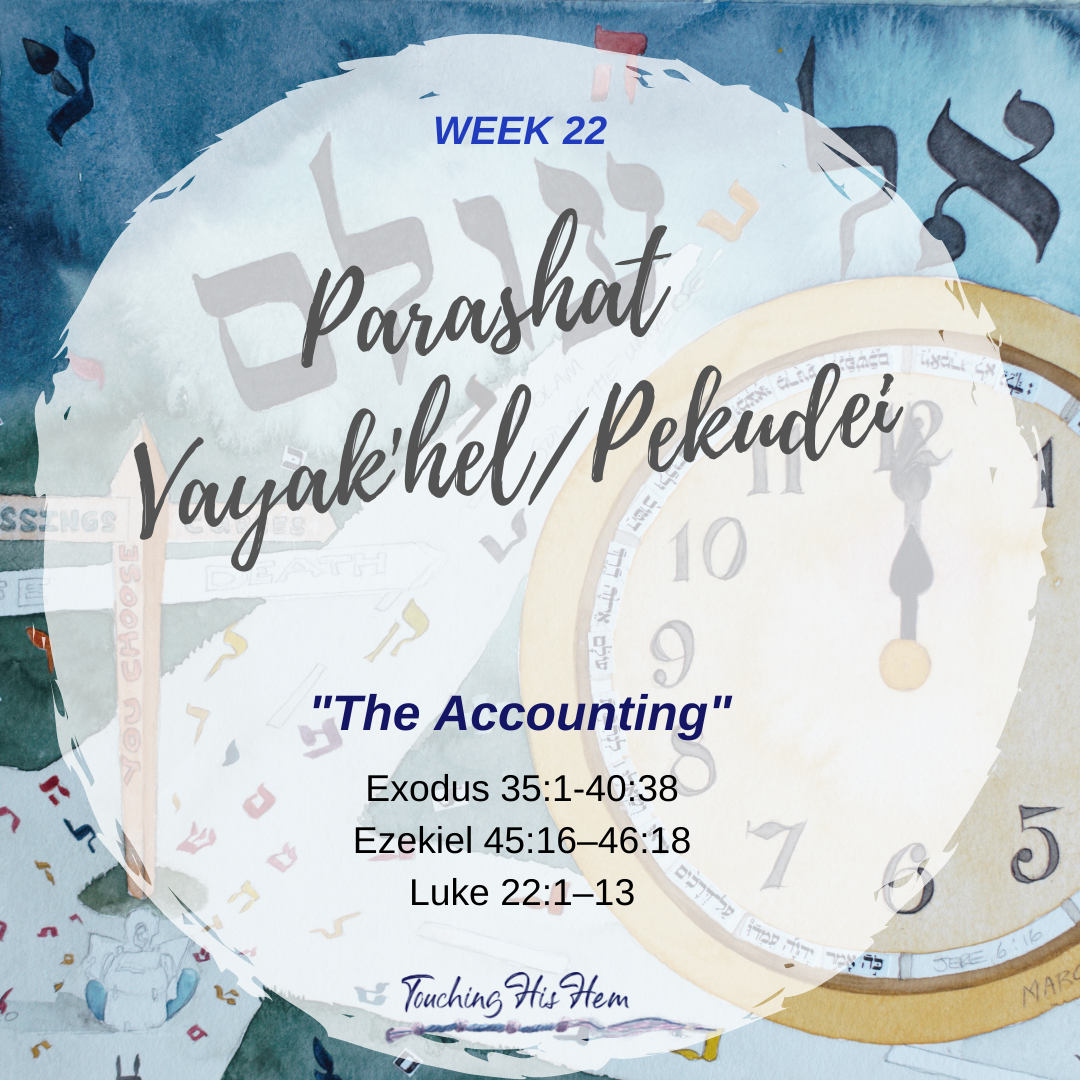
Torah Thoughts - Vayak'hel/Pekudei
Share
Have you ever thought of yourself as a builder?
Building something is far more than just bricks and mortar – building something takes accounting, not just for the resources required, but the foundation, the measurements, the engineering of a structure and of course the blueprints. In this Torah portion Moshe is calling for the Israelites to come together and to take account – who were they as a people and who were they as individuals. Each one impacted the other – like bricks and mortar - without collaboration of the two there would be no wall and if there was one, it would certainly not last very long without them working together.
Moshe starts this moment in time with gathering – whenever we see the word ‘gather’ we need to be reminded of Sukkot and the ingathering. Each moment the k’hal or congregation come together it is prophetic picture of the day when we will all be gathered in the cloud at the banquet of our King! This k’hal was a mixed multitude of people – the zera (seed) of Avraham – waiting in anticipation for the gathering to the land! And isn’t this exactly where we all are today? We are all awaiting the gathering of Believers – both Jew and Gentile – grafted in to one k’hal. The building of a holy nation.
At the beginning of his talk with Israel he calls them to hear the words that HaShem has commended them to do. This word do is asah in Hebrew. Asah means to fashion, accomplish, make and build.
In this moment Father is showing us that as His children and do-ers of the Word are in fact builders of the Word. We are busy with the building of the Kingdom every time we respond in obedience to His mitzvot, His chukkot and His mishpatim, these are the blueprints that He has given us in order to live this life within the framework of His love, protection and blessings. When we build according to His blueprints, we know who becomes the chief cornerstone of our design – Yeshua HaMashiach!
Everything we do carries consequence for us both positive and negative. If we are focused on building the Words of HaShem the consequence and fruit of our actions carry positive and life-giving results and we know the opposite of this is also true. When we neglect the Word, when we ignore the guidance of our Creator and act in direct violation of His Word the consequences are destructive and work against us. We may not experience either of these consequences with immediate effect but over time if we truly are paying attention, we can see the fruit of both actions.
Moshe was stepping into His new role as teacher having already walked this road of consequence and his heart understood the weight and the freedom of these “blueprints”. It is not without intention that the very first thing Hashem calls His people to is keep Shabbat – accomplish rest!
Shabbat is the completion of all things and is a symbol of the completed works of Yeshua. This day was created for us to step into without earning it and is one of the most vital things for us to ‘build’ as Believers. Adam demonstrated this for us as his first action and so it should be the most natural things that we do – asah – build into out lives and into our temple that we are building within us for the purposes of His Kingdom.
Shabbat forms the ot – the sign of the covenant between us and HaShem. I believe it forms a foundation for keeping all the commands. It is the fourth commandment, the fourth letter of the alephbet is the dalet – which is the door. Yeshua is the door to the Father and He is the Lord of the Sabbath. When we enter into Shabbat we are acknowledging the competed works of Messiah as we follow His example to enter into the rest created for us in the very beginning! It is all so beautifully linked together – like the bricks and the mortar.
When we keep His Shabbat our focus shifts from a life lived and built for ourselves as individuals to a life lived and built for the glory of HaShem and His Kingdom. Shabbat shifts our focus towards His presence and our gift through Yeshua, of entering into the Holy of Holies and boldly approaching the throne of grace. It is a symbol of a generous heart and one that is open to surrendering for the glory of our Adonai Elohim who has given us far more than we are worthy of.
Let us reflect on the words we have been building with and focus on areas that don’t really reflect the glory of our King. As we read about the design of the tabernacle – let us consider the design of our own and ask HaShem to show us which areas need attention in order to reflect more of His glory and majesty for the glory of His k’hal and as a testimony of His redemption in our lives.
Rest well and be blessed as your study further.
Shabbat shalom.
Michelle
